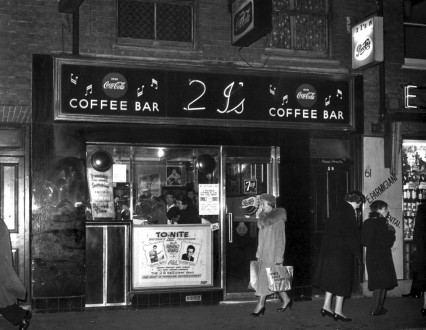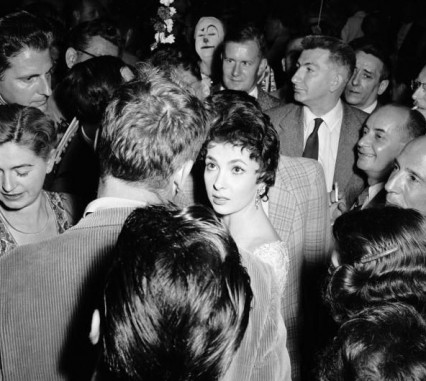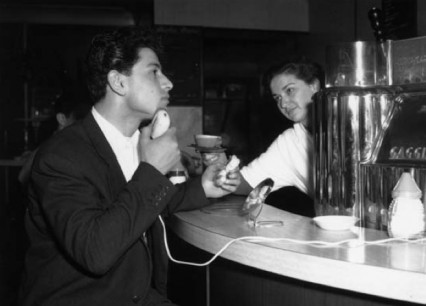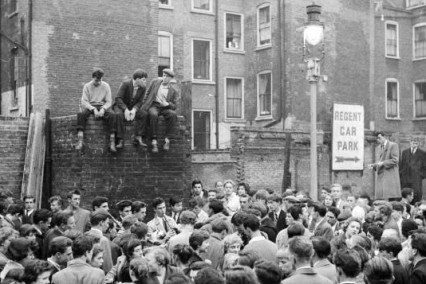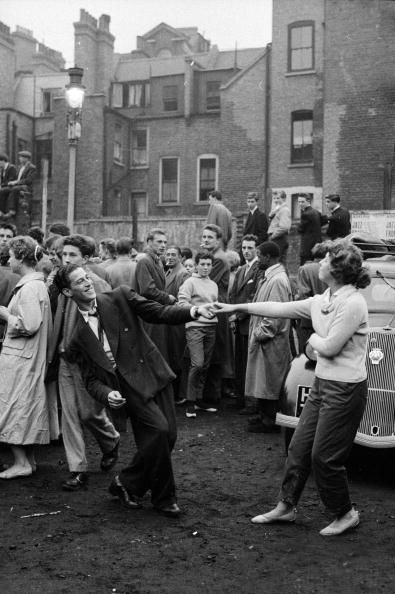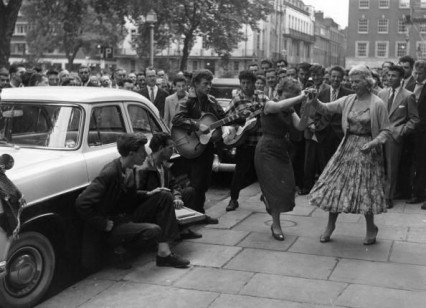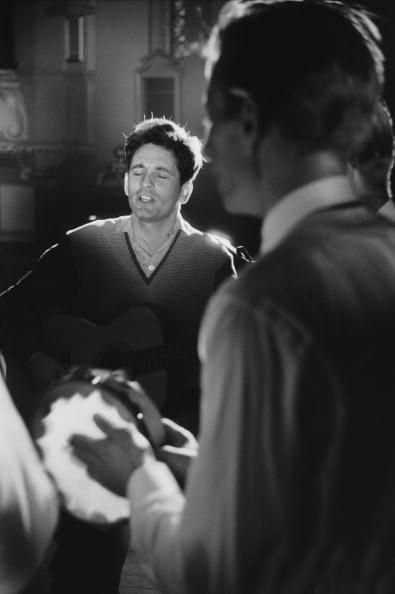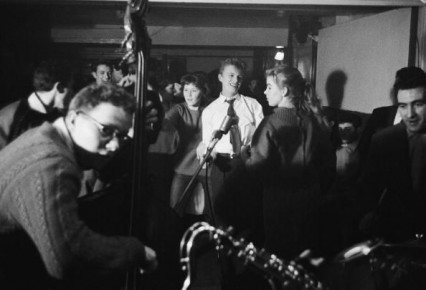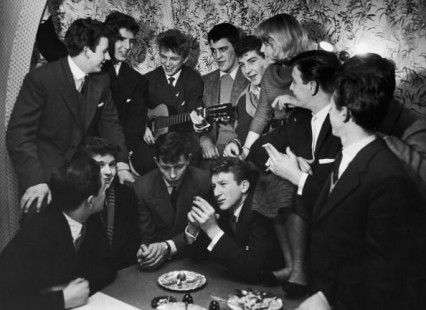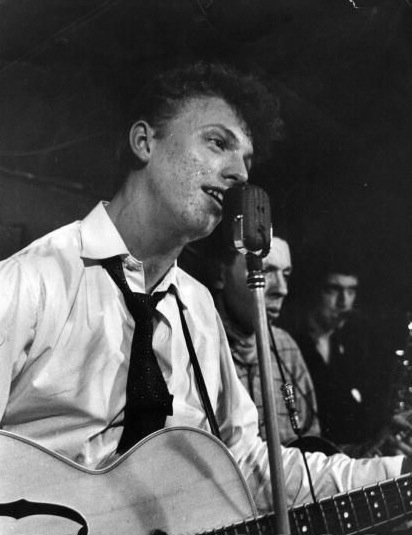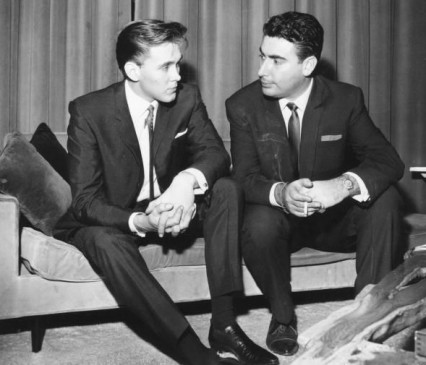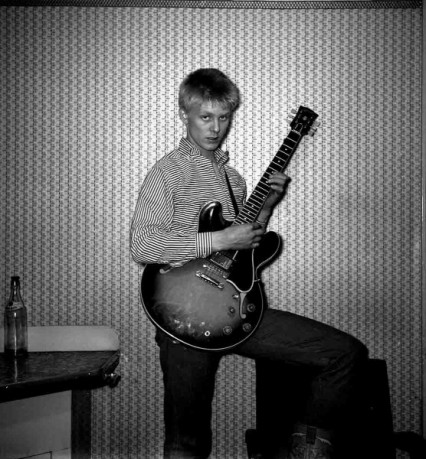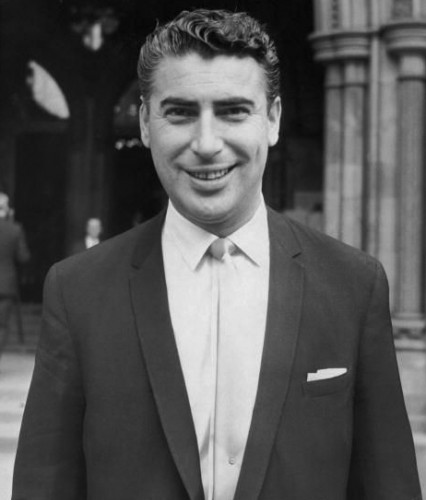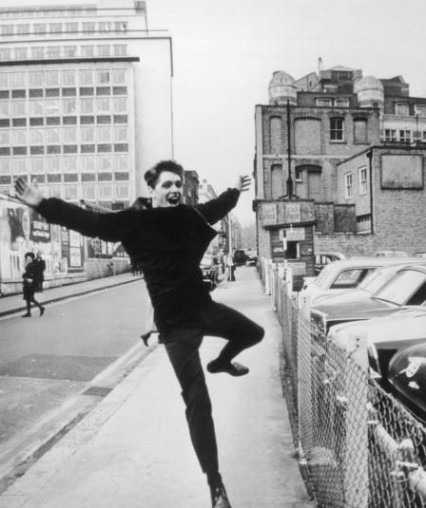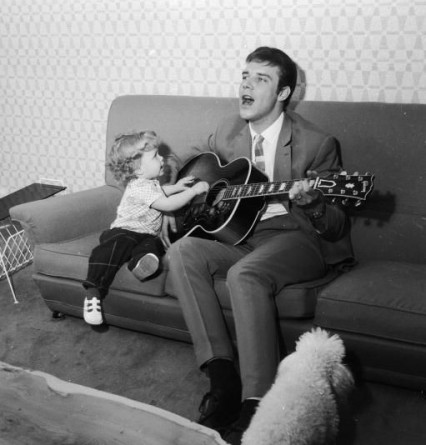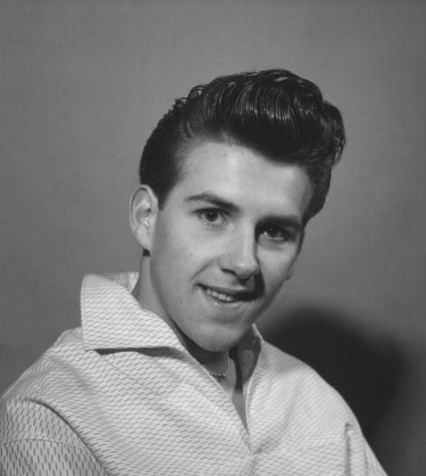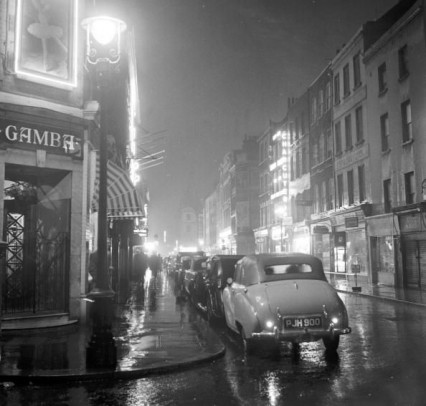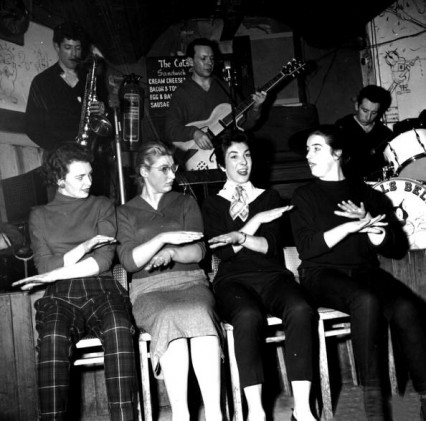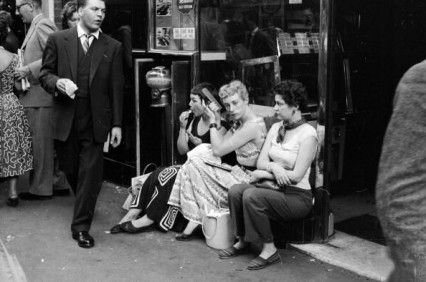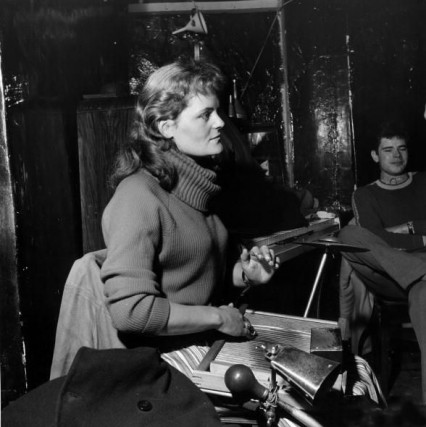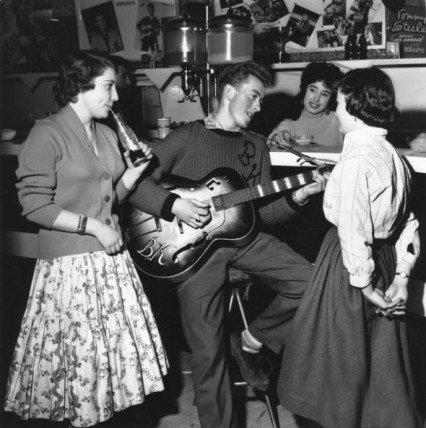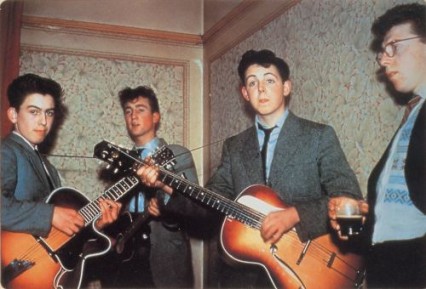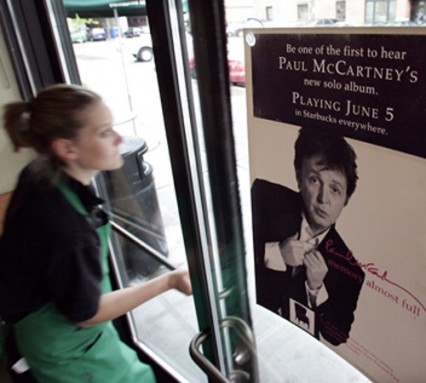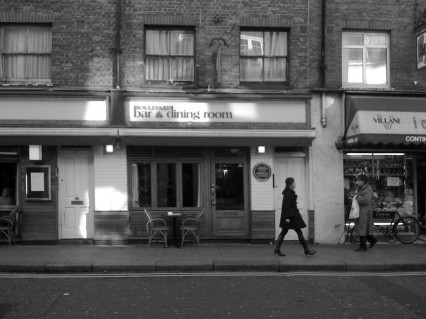“Soho is a place where all the things they say happen, do” – Colin Macinnes
Other coffee bars soon sprung up around Soho, often providing live music, and these included the Top Ten in Berwick Street and the Heaven and Hell bar in Old Compton Street. The most famous of all, however, and next door to the Heaven and Hell, was the 2 i’s at number 59.
Almost over night young people, who now for the first time were starting to be known as ‘teen-agers’ had somewhere to go they could call their own. The coffee shops were unlicensed and there was nothing to stop teenagers coming to Soho to listen to music, live, or on the jukebox. If you were young, Soho was suddenly the place to be.
The Two i’s was bought in 1955 by an Australia wrestler called Paul Lincoln (Dr Death when in the ring – and one of the sport’s first masked wrestlers,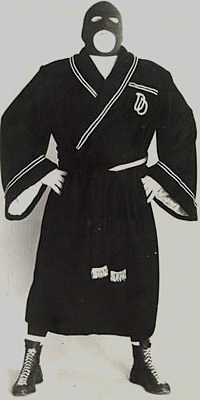 cleverly enabling him to fight twice on the same bill, and thus doubling his fee). The name of the bar came from the two brothers called Irani he had bought it from.
cleverly enabling him to fight twice on the same bill, and thus doubling his fee). The name of the bar came from the two brothers called Irani he had bought it from.
The 2 i’s wasn’t a particularly busy place initially and it was quickly losing money, but this all changed when Lincoln started to put on skiffle groups that were becoming popular with teenagers, especially after Lonnie Donegan’s Rock Island Line had become a hit. Skiffle was suited totally to the new coffee shops due to the minimal, cheap and un-amplified instruments the bands used and thus able to fit into the tiniest, sweatiest cellar.
Clutching their guitars, teenagers, from all over the country, started coming to the 2 I’s, or even Soho in general, to try and find fame and fortune. Cliff Richard and the Shadows (initially the Drifters) all met by being regulars at the cafe. Bruce Welch of the Shadows once said:
“The Two I’s was the place to be discovered. If it was good enough for Tommy Steele it was good enough for us.”
Larry Parnes, considering himself an ‘impresario’ and known to many as ‘Mr Parnes, Shillings and Pence’, started to manage other singers and after the success of Steele insisted on creating cartoonish pseudonyms, thus Reg Smith became Marty Wilde, Ronald Wycherley became Billy Fury and Clive Powell became Georgie Fame. Joe Brown, however rejected his Parnes’ name of Elmer Twitch (not surprisingly) and solely, it seems, had a music career with the name with which he was born.
Larry Parnes wasn’t known as the ‘beat svengali’ for nothing, and his relationship with his proteges was ‘fatherly’ at the very least. Vince Eager at one point was wondering why he hadn’t received any record royalties. “You’re not entitled to any,” Larry Parnes told him. “But it says in my contract that I am,” Eager protested. “It also says I have power of attorney over you, and I’ve decided you’re not getting any,” Parnes replied.
Parnes’ power in the music business swiftly declined with the rise of the Beatles (he rejected them as a backing group for Billy Fury at one point) and, always happier with family entertainment, he went on to produce theatre shows. However the mid to late fifties was an incredibly exciting and creative time for British music and the attraction of rock ‘n’ roll brought talented (and, to be fair, not so talented) teenagers from all over the country to try their hand at a new musical fashion.
It seemed, at last, that anyone from any backgrould could make it. Only Punk, perhaps, echoed the musical ‘can do’ atmosphere of this period, just two decades later.
It’s now over fifty years since the heyday of the 2 I’s coffee bar in Old Compton Street. A lot of the Soho cafes, like everywhere else, are either closing down or becoming part of the ubiquitous Starbucks chain. Starbucks, of course, branched out last year and started their own record label featuring cutting edge artists such as Carly Simon and James Taylor.
The ubiquitous coffee chain also signed Paul McCartney, who fifty years ago was inspired by the skiffle boom created by the Soho Coffee shops to join John Lennon’s skiffle band The Quarrymen. And we all know what happened to them.
